- Home
- J. D. Robb
Salvation in Death Page 7
Salvation in Death Read online
Page 7
Eve avoided the next wave of toddlers being carried, dragged, chased, or led, and escaped into an office with two desks pushed together so their occupants could face each other. She scanned bulletin boards holding more flyers, memos. A mini AutoChef and small Friggie crowded a shelf while piles of athletic equipment, stacks of discs, actual books, writing materials jammed others.
Eve crossed to the window, noted it afforded a view of the playground, where even now some of those toddlers were being released to run and shriek like hyenas.
“Why do they make that sound?” Eve wondered. “That puncture-the-eardrums sound?”
“It’s a release of energy, I guess.” Because they were there and so was she, Peabody poked at some of the papers on the desks. “Same reason most kids run instead of walk, climb instead of sit. It’s all balled up inside, and they have to get it out.”
Eve turned back, pointed her finger at Peabody. “I get that. I actually get that. They can’t have sex or alcohol, so they scream, run, punch each other as a kind of orgasmic or tranquilizing replacement.”
“Ummm” was all Peabody could think of, and she glanced over with some relief as Magda hurried in.
“Sorry about that. A lot of parents get here at the last minute, then it’s chaos. Please, have a seat. Ah, I can get you coffee, tea, something cold?”
“Just your full name, thanks.”
“Oh, of course. Magda Laws. I’m the codirector.” She fingered a small silver cross at her throat. “This is about Father Miguel.”
“Yes. How long did you know him?”
“Since he came to the parish. Five years? A little longer.”
“And your relationship?”
“We were friends. Friendly. He was very involved with the center, very energetic about his participation. I honestly don’t know what we’ll do without him. That sounds so selfish.” She drew a chair from behind one of the desks, rolled it toward the visitors’ chairs. “I can’t quite take it in. I guess I keep expecting him to pop his head in here and say hello.”
“How long have you worked here?”
“Nearly eight years now. Marc—I’m sorry, he’s not in this morning. He’s taking a course, a psychology course, and doesn’t come in until the afternoon. For another few weeks, anyway. That’s Marc Tuluz.”
“And he and Flores were also friendly?”
“Yes, very. In the last few years, I’d say the three of us considered ourselves a team. We have lots of good people here—counselors, instructors, care providers. But, well, the three of us were—are—I don’t know . . .” She lifted her hands as if she didn’t know quite what to do with them. “. . . the core. Miguel was very proactive. Not just with the kids, but with fund-raisers, and raising community awareness, drafting sponsors and guest instructors.”
Her eyes filled as she spoke; her voice thickened. “It’s hard. This is very hard. We had a short memorial this morning, for the school-aged kids, and we’re having another at the end of the day. It helps, I guess, but . . . We’re going to miss him so much, in so many ways. Marc and I were just talking last night about naming the gym after him.”
“Last night?”
“Marc and I live together. We’re getting married in September. Miguel was going to marry us.” She looked away briefly, struggling against those tears. “Can I ask? Do you have any idea what happened, or how, or why?”
“We’re pursuing some avenues. Since you were friendly, and worked closely, did Flores ever talk about what he did before he came here?”
“Before?” She pushed at her sunny hair, as if aligning her thoughts. “Ah, he worked in Mexico, and out West. He was born out there, out West. Is that what you mean?”
“Did he talk about his work out West—specifically.”
“God. He must have, now and then, but we were always so involved with now, and tomorrow. I do know he worked with kids out there, too. Sports, getting them involved. Teams. He liked teaching them to value being part of a team. He, ah, he was orphaned at a young age, and didn’t like to talk about it. But he would say his own experiences were a key reason why he wanted to devote so much time to kids. He was great with them.”
“Any kid or kids in particular?” Peabody wondered.
“Oh, over the years, any number. It depends, you know, on what a child needs from us—needed from him.”
“Are you from this area?” Eve asked her.
“I went to college here, and stayed. I knew it was exactly where I wanted to be.”
“How about Marc?”
“He moved here with his family when he was a teenager. Actually, his sister is married to one of the Ortiz cousins. She was at the funeral yesterday when . . . She’s the one who came down to tell us.”
“Do you know anyone who had trouble with Flores? Who disliked him? Argued with him?”
“There are lots of degrees in that. Certainly there were times Miguel had to sit on a kid. Or a parent, for that matter. Arguments happen during sports. But if you mean something serious, something that could have lead to this, I have to say no. Except . . .”
“Except.”
“There was Barbara Solas—she’s fifteen. She came in one day a few months ago with her face bruised. To condense, her father often hit her mother, and—we learned—had sexually molested Barbara.”
On her lap, Magda’s hands balled into fists. “She resisted, and he beat her. And the day she came to us, she said she’d gone at him. Lost it, and gone at him. He’d beaten her and tossed her out. So she came to us for help, finally came to us, told us what was happening at home. We helped. We notified the authorities, the police, child protection.”
“This Solas blamed Flores?”
“I’m sure he did, and us. Barbara told us, and it was confirmed later, that her father had started on her little sister. Her twelve-year-old sister—and that’s when Barbara went at him. I convinced the mother to go to a shelter, to take Barbara and her other children. But before I went to see her, before the police came and arrested Solas, Marc and Miguel went to see Solas on their own.”
“They confronted him?”
“Yes. It’s not policy, not the way we’re supposed to handle something like this, but Miguel . . . We couldn’t stop him, so Marc went with him. I know things got heated, though neither Marc nor Miguel would give me the details. I know they got heated because Miguel’s knuckles were torn and bloody.”
“How long ago was this?”
“In February.”
“Did they attend church?”
“Mrs. Solas, and some of the children. Not him, not Solas.”
“And now? Are they still in the area?”
“Yes. They stayed at the shelter about a month, then we—Marc, Miguel, and I—were able to help her get a new place, and another job. Lieutenant, she wouldn’t have hurt Miguel. She’s grateful.”
“All the same, I need an address.”
As Peabody noted down the address Magda gave them, Eve tried another tack. “You said you knew this was where you wanted to be. Would you say Flores seemed as at home here, as quickly?”
“I’d have to say yes. Of course, I didn’t know him before, but it struck me he’d found his place.” She smiled then, obviously comforted by the idea. “Yes, very much so. He loved the neighborhood. He often took walks or jogged around here. He and Father Martin—Father Freeman—jogged most mornings. Miguel routinely stopped into shops, restaurants, just to chat.”
“He ever put a move on you?”
“What?” Once again, Magda clutched at her cross.
“You’re a very attractive woman, and you worked together closely.”
“He was a priest.”
“He was a man first.”
“No, he did not make a move on me.”
Eve angled her head. “But?”
“I didn’t say ‘but.’ ”
“You thought it. Magda, he’s dead. Anything you tell me may help us find the who, and the why. I’m not asking to get my rocks off.”
Magda heaved out a breath. “Maybe I felt there was something, that he might have thought about it, or wondered. It feels wrong to say this.”
“You got the vibe,” Eve prompted.
“Yes, all right, I got the vibe. He might have looked at me now and then more like a man does, who’s interested, than a priest should. But that’s all. He never suggested, or touched me inappropriately. Ever.”
“Could there have been someone else?”
“I never got that impression.”
“Okay. Other than you and Marc, who did he spend time with?”
“Fathers López and Freeman, of course. Father Freeman especially. They were both into sports—playing and watching—and Father Freeman often helps us out here, too. And he, Miguel, made time for the kids, for his parishioners, even just people in the neighborhood. He was outgoing.”
5
EVE AND PEABODY WENT BACK TO THE CHURCH.
“Are you thinking the Solas woman changed her mind about being grateful?” Peabody wondered.
“Wouldn’t be the first time. Poison skews female. She went to church here, would’ve known the setup, or could have found out. She’s not on the list for the funeral, but it wouldn’t have been hard to get in and out. Not my favorite theory, but we’ll check it out.”
“Solas himself could have arranged for it. Maybe we should check his communication from prison.”
“We’ll do that.”
“But you don’t like that theory either.”
“Not top of my hit parade. A guy gets his ass kicked, he wants physical, violent payback. A bigger ass-kicking.” Eve crossed the vestibule and walked into the church proper. She watched the tall man with dark skin genuflect, then turn.
“Good morning,” he said in a rich baritone that echoed theatrically.
He wore black sweats and a short-sleeved sweatshirt. Eve wondered, if she hadn’t studied his ID photo already, if she’d have made him for a priest, the way the kids playing ball had made her for a cop.
She wasn’t entirely sure.
“Father Freeman, I’m Lieutenant Dallas. My partner, Detective Peabody.”
He was compelling in his photo, but more so in person, to Eve’s mind. Tall, muscular, strikingly handsome, with large, liquid brown eyes, and an athletic way of moving. He met them in the center of the aisle, held out a big hand. “It’s a lousy way to meet anyone, Lieutenant. Detective. Chale—Father López—said you’d probably come by to talk to me. Would you like to go to the rectory?”
“Here’s fine, unless you’re expecting some business.”
He smiled, went from handsome to hot. “Things are usually quiet in here this time of morning. I thought I’d go for a run after early Mass, but I . . . I didn’t have it in me. I ended up coming here. A little alone time to think about Miguel, to say a few prayers.”
“You used to run with him in the mornings.”
“Yes. Most days we’d take a run together, around the neighborhood. I guess that’s why I came here, instead of taking our loop. It just . . .”
“Yeah. You were close.”
“We were. We hit it off, enjoyed debating, long discussions—about everything under the sun. Church law, politics, why the Yankees traded Alf Nader.”
“Yeah.” Eve jabbed a finger at Freeman. “What were they smoking?”
“Idiot weed, if you ask me, but Miguel thought it was the right move. We argued that one for hours the night before I left for Chicago.”
It struck him, showed on his face, that he remembered it was the last he’d seen or spoken to Flores. “We watched the Yankee game on-screen in the parlor, the three of us. Chale went up during the seventh-inning stretch. But Miguel and I sat and watched, argued the trade and the calls, everything else, and killed six brews.”
“You can do that? Drink brew.”
The faintest smile played around Freeman’s mouth. “Yes. It’s a good memory. It’s a good one to remember. How we watched the game and argued about Alf Nader.”
Freeman turned to look back at the altar. “It’s better than trying to imagine what it was like, what it must’ve been like when he died up there. The world’s full of terrible things, but this? To kill a man, and to use faith, his calling as the weapon.” Freeman shook his head.
“It’s hard to lose a friend,” Eve said after a moment.
“Yes, it is. Hard, too, not to question God’s will.”
Eve thought God took a lot of blame, when to her mind it came down to one human being choosing to slaughter another. “You said ‘loop.’ You had a usual jogging route?”
“In the mornings? Yes. Why?”
“You never know. Where did you habitually run?”
“We’d head east to First, then go north to East 122nd. Turn back west, to Third Avenue, south from there to finish the loop. He often—or sometimes both of us—might stop at the youth center before coming home. Toss a few baskets with the kids.”
“When’s the last time you ran together?”
“About a week ago. The day before I left for Chicago. I had an early shuttle, so I didn’t run that morning.”
“Did he meet anyone along the way, have words with? Or mention anyone he’d had trouble with?”
“Nothing like that. Well, we might see people we know leaving for work, or coming home after a night shift. People who might call out hello, or some comment. People who live or work along the route. Mr. Ortiz, for instance. We passed his house every day, and in good weather, Mr. Ortiz walked in the mornings, so he might be out.”
“Mr. Ortiz. The one who died.”
“Yes. He’ll be missed. I’ll miss seeing him on my run, just as I’ll miss having Miguel running with me.”
“Did Flores talk to you about anyone, or anything, that troubled him?”
“We all wrestle with faith, and our purpose. We would, when we felt the need, discuss in general terms the problems of someone who’d come to us. How we could best help.”
When Eve’s ’link signaled, she nodded to Peabody to take over, and stepped away.
“Father, what about Mr. Solas? We’re told they had an altercation.”
Freeman let out a sigh. “Yes, Miguel was incensed, furious when we learned Barbara had been abused. We’re told to hate the sin, not the sinner, but there are times that’s very hard. He did have an altercation with Mr. Solas, and that altercation was physical. The fact is, Miguel knocked Solas out, and might have done more if Marc Tuluz hadn’t stopped it. But Solas is in prison.”
“And Mrs. Solas?”
“She’s in counseling, as are her children. She’s making progress.”
Eve stepped back. “We may want to take this to the rectory after all. Is Father López in?”
Obviously puzzled, Freeman checked his wrist unit. “Yes, he should be. He has neighborhood calls shortly.”
“Then we’ll meet you there.”
Peabody waited until they stepped out. “What’s up?”
“Dental records are in. We can stop pussyfooting around.”
Rosa escorted them into López’s office, where he sat at his desk and Freeman stood by the small window.
“You’ve learned something,” López said immediately.
“Confirmed something. The man who died yesterday wasn’t Father Miguel Flores.”
“I don’t understand what you mean.” Placing his hands on the desk, López pushed out of his chair. “I was there. I saw him.”
“The man you knew as Flores assumed that identity. We believe he assumed it sometime between June and October of 2053, and had some facial surgery to enhance the facade. As the actual Miguel Flores hasn’t been seen or heard from in that time, we speculate he’s dead.”
“But . . . He was sent here.”
“At his request, and with the use of that falsified identification.”
“Lieutenant, he performed Mass, the sacraments. There must be a mistake.”
“You said you confirmed it,” Freeman interrupted. “How?”
“D
ental records. The body in our possession has had facial surgery. Cosmetic surgery. A tattoo removal. There were scars from knife wounds.”
“I saw those,” Freeman stated. “The wounds. He explained them. He lied.” Now Freeman sat. “He lied. Why?”
“There’s a question. He went to some trouble to be assigned here, specifically. That’s another why. Did he ever speak to you about anyone named Lino?”
“No. Yes. Wait.” Freeman massaged his temples, and his fingers trembled. “We were debating absolution, restitution, penance, forgiveness. How sins may be outweighed by good deeds. We had different philosophies. He used Lino as an example. As in, let’s take this man—call him Lino.”
“Okay. And?”
Freeman pushed up, those dark eyes rested on his fellow priest. “This is like another death. Worse, I think. We were brothers here, and servants, and shepherds. But he was none of that. He died in sin. The man I just prayed for died in sin, performing an act he had no right to perform. I confessed to him, and he to me.”
“He’ll answer to God now, Martin. There’s no mistake?” López asked Eve.
“No, there’s no mistake. What did he say about Lino?”
“It was an example, as I said.” Freeman sat again as if his legs were weary. “That if this young man, this Lino, had sinned, even grievous sins, but that he then devoted a portion of this life to good works, to helping others, to counseling them, and leading them away from sin, it would be restitution, and he could continue his life. As if a slate had been wiped clean.”
“You disagreed.”
“It’s more than good deeds. It’s intent. Are the good deeds done to balance the scales, or for their own sake? Did the man truly repent? Miguel debated that the deeds themselves were enough.”
“You think he was Lino?” López put in. “And this debate was about himself, about using the time here to . . . balance out something he did in the past?”

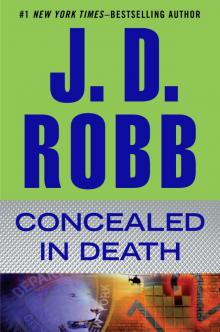 Concealed in Death
Concealed in Death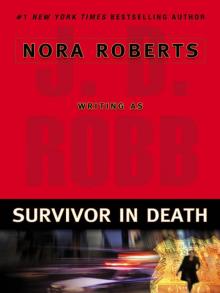 Survivor in Death
Survivor in Death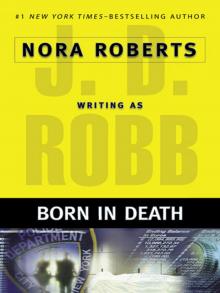 Born in Death
Born in Death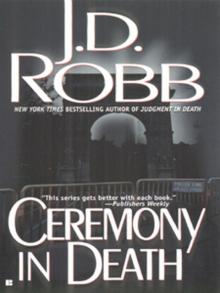 Ceremony in Death
Ceremony in Death Indulgence in Death
Indulgence in Death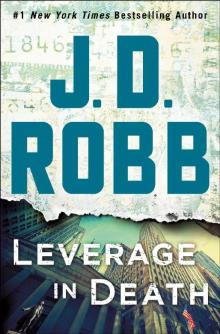 Leverage in Death
Leverage in Death Devoted in Death
Devoted in Death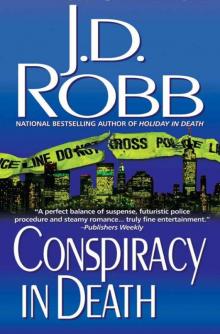 Conspiracy in Death
Conspiracy in Death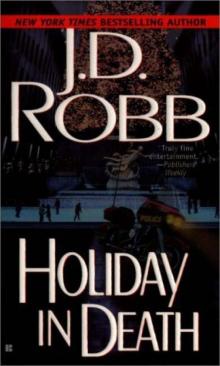 Holiday in Death
Holiday in Death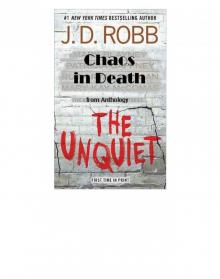 The Unquiet
The Unquiet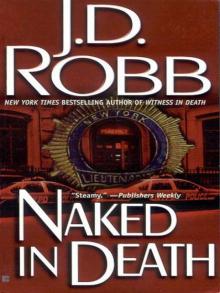 Naked in Death
Naked in Death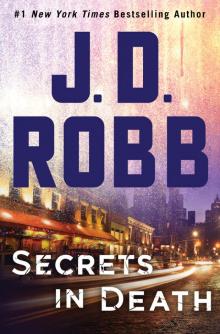 Secrets in Death
Secrets in Death Seduction in Death
Seduction in Death Strangers in Death
Strangers in Death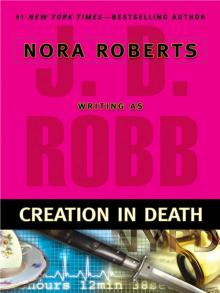 Creation in Death
Creation in Death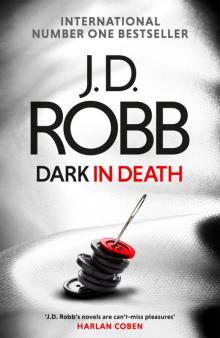 Dark in Death
Dark in Death Possession in Death
Possession in Death Visions in Death
Visions in Death Midnight in Death
Midnight in Death Innocent in Death
Innocent in Death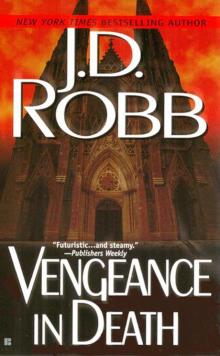 Vengeance in Death
Vengeance in Death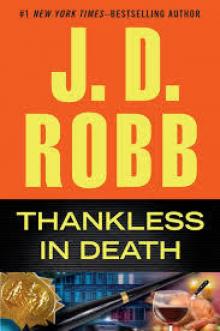 Thankless in Death
Thankless in Death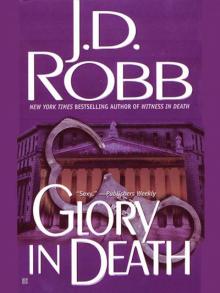 Glory in Death
Glory in Death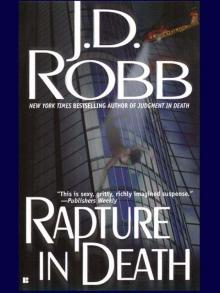 Rapture in Death
Rapture in Death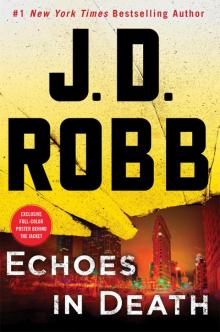 Echoes in Death
Echoes in Death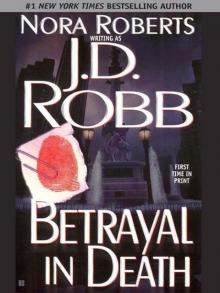 Betrayal in Death
Betrayal in Death Celebrity in Death
Celebrity in Death Immortal in Death
Immortal in Death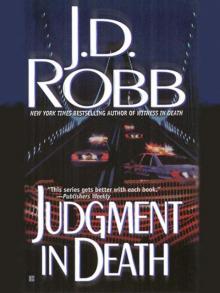 Judgment in Death
Judgment in Death Ritual in Death
Ritual in Death Portrait in Death
Portrait in Death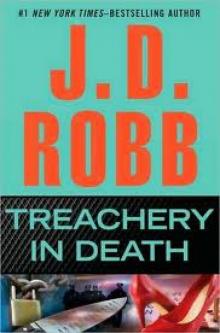 Treachery in Death
Treachery in Death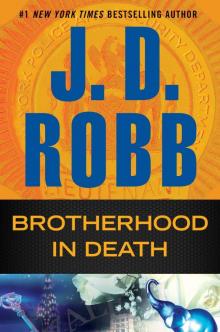 Brotherhood in Death
Brotherhood in Death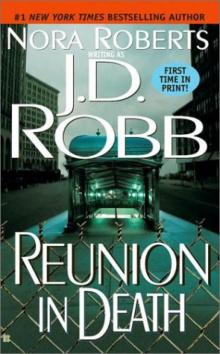 Reunion in Death
Reunion in Death Connections in Death: An Eve Dallas Novel
Connections in Death: An Eve Dallas Novel Imitation in Death
Imitation in Death New York to Dallas
New York to Dallas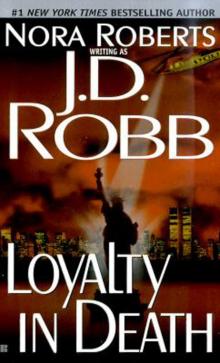 Loyalty in Death
Loyalty in Death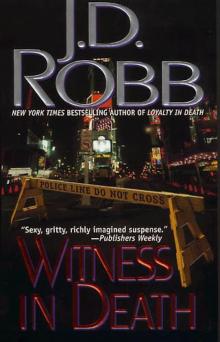 Witness in Death
Witness in Death Connections in Death
Connections in Death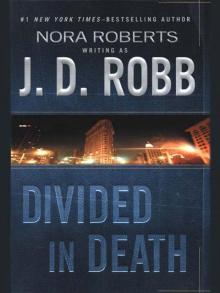 Divided in Death
Divided in Death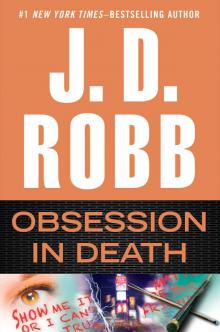 Obsession in Death
Obsession in Death Purity in Death
Purity in Death Festive in Death
Festive in Death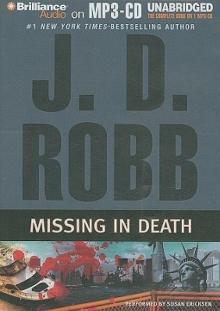 Missing in Death
Missing in Death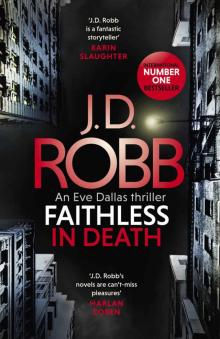 Faithless in Death: An Eve Dallas Thriller (Book 52)
Faithless in Death: An Eve Dallas Thriller (Book 52)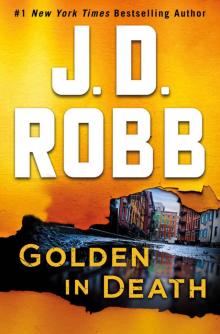 Golden in Death
Golden in Death The In Death Christmas Collection
The In Death Christmas Collection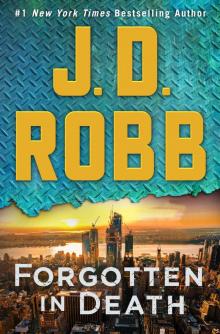 Forgotten in Death
Forgotten in Death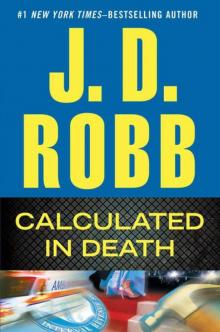 Calculated in Death
Calculated in Death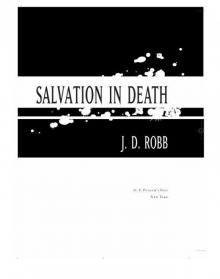 Salvation in Death
Salvation in Death Interlude in Death
Interlude in Death Haunted in Death
Haunted in Death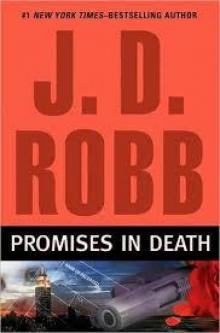 Promises in Death
Promises in Death In Death 07.5 - Midnight in Death
In Death 07.5 - Midnight in Death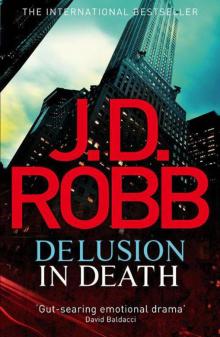 44 Delusion in Death
44 Delusion in Death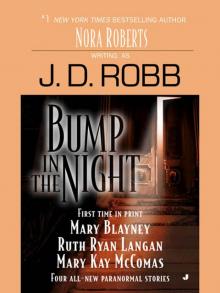 Bump in the Night
Bump in the Night The In Death Collection, Books 16-20
The In Death Collection, Books 16-20![[In Death 17] - Imitation in Death Read online](http://i1.bookreadfree.com/i/03/20/in_death_17_-_imitation_in_death_preview.jpg) [In Death 17] - Imitation in Death
[In Death 17] - Imitation in Death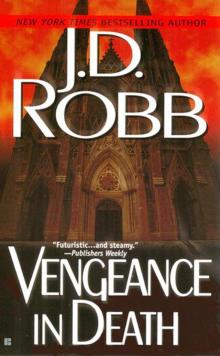 In Death 06 - Vengeance in Death
In Death 06 - Vengeance in Death Dead Of Night
Dead Of Night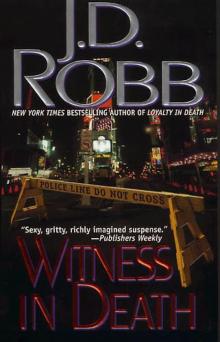 In Death 10 - Witness in Death
In Death 10 - Witness in Death![[In Death 16] - Portrait in Death Read online](http://i1.bookreadfree.com/i1/03/27/in_death_16_-_portrait_in_death_preview.jpg) [In Death 16] - Portrait in Death
[In Death 16] - Portrait in Death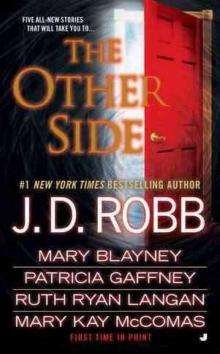 Possession in Death edahr-39
Possession in Death edahr-39 Remember When edahr-20
Remember When edahr-20 Big Jack
Big Jack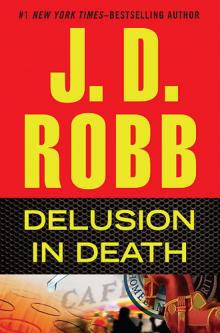 Delusion in Death edahr-44
Delusion in Death edahr-44 Missing in Death edahr-36
Missing in Death edahr-36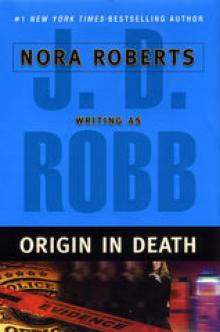 Origin in Death edahr-24
Origin in Death edahr-24![[In Death 18] - Divided in Death Read online](http://i1.bookreadfree.com/i1/04/03/in_death_18_-_divided_in_death_preview.jpg) [In Death 18] - Divided in Death
[In Death 18] - Divided in Death The Lost
The Lost![[In Death 05] - Ceremony in Death Read online](http://i1.bookreadfree.com/i1/04/01/in_death_05_-_ceremony_in_death_preview.jpg) [In Death 05] - Ceremony in Death
[In Death 05] - Ceremony in Death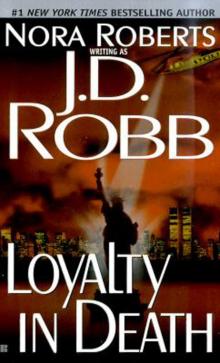 In Death 09 - Loyalty in Death
In Death 09 - Loyalty in Death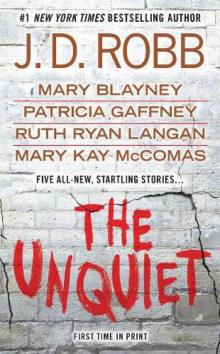 Chaos in Death edahr-42
Chaos in Death edahr-42 In Death 12.5 - Interlude in Death
In Death 12.5 - Interlude in Death![In Death [47] Leverage in Death Read online](http://i1.bookreadfree.com/i1/04/01/in_death_47_leverage_in_death_preview.jpg) In Death [47] Leverage in Death
In Death [47] Leverage in Death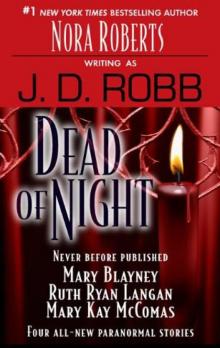 In Death - 24.50 - Dead of Night
In Death - 24.50 - Dead of Night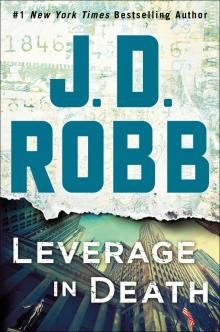 Leverage in Death--An Eve Dallas Novel
Leverage in Death--An Eve Dallas Novel![[In Death 24] - Innocent in Death Read online](http://i1.bookreadfree.com/i1/04/05/in_death_24_-_innocent_in_death_preview.jpg) [In Death 24] - Innocent in Death
[In Death 24] - Innocent in Death![[In Death 15] - Purity in Death Read online](http://i1.bookreadfree.com/i1/04/05/in_death_15_-_purity_in_death_preview.jpg) [In Death 15] - Purity in Death
[In Death 15] - Purity in Death The In Death Collection, Books 26-29
The In Death Collection, Books 26-29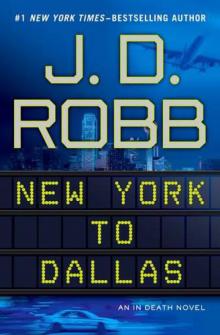 New York to Dallas edahr-41
New York to Dallas edahr-41 The Other Side
The Other Side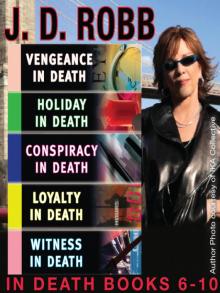 The In Death Collection 06-10
The In Death Collection 06-10![[In Death 08] - Conspiracy in Death Read online](http://i1.bookreadfree.com/i2/04/05/in_death_08_-_conspiracy_in_death_preview.jpg) [In Death 08] - Conspiracy in Death
[In Death 08] - Conspiracy in Death The In Death Collection, Books 21-25
The In Death Collection, Books 21-25 Memory in Death edahr-25
Memory in Death edahr-25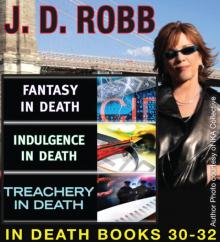 The In Death Collection, Books 30-32
The In Death Collection, Books 30-32 Down the Rabbit Hole
Down the Rabbit Hole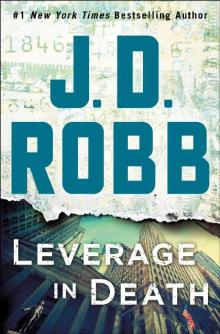 Leverage in Death: An Eve Dallas Novel (In Death, Book 47)
Leverage in Death: An Eve Dallas Novel (In Death, Book 47) The In Death Collection, Books 6-10
The In Death Collection, Books 6-10 The In Death Collection, Books 11-15
The In Death Collection, Books 11-15 Celebrity in Death edahr-43
Celebrity in Death edahr-43 Treachery in Death edahr-40
Treachery in Death edahr-40![[In Death 12] - Betrayal in Death Read online](http://i1.bookreadfree.com/i2/04/13/in_death_12_-_betrayal_in_death_preview.jpg) [In Death 12] - Betrayal in Death
[In Death 12] - Betrayal in Death The In Death Collection, Books 1-5
The In Death Collection, Books 1-5